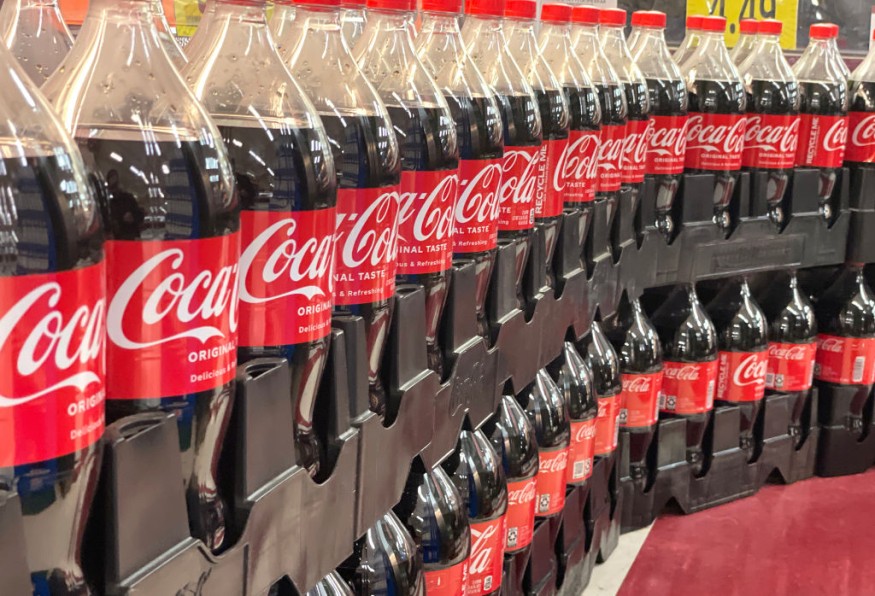
Coca-Cola has significantly scaled back its sustainability goals, drawing criticism from environmental groups as concerns over plastic pollution escalate worldwide.
The company, long criticized as a major plastic polluter, announced changes to its voluntary environmental targets, emphasizing increased use of recycled materials while stepping back from earlier commitments to reduce single-use plastics.
Coca-Cola Scales Back Sustainability Goals, Sparks Criticism Over Plastic Pollution
According to CNN, the beverage giant now aims to use 35% to 40% recycled material in its packaging by 2035, a reduction from its previous target of 50% by 2030.
Additionally, its goal to recycle the equivalent of every bottle it produces has been replaced with an aim to "ensure the collection" of 70% to 75% of bottles and cans annually, without specifying a timeline.
Coca-Cola explained these changes were based on decades of sustainability experience and an assessment of ongoing challenges.
However, critics argue the move undermines efforts to combat plastic pollution. Environmental groups like Oceana have called the revisions "short-sighted" and accused Coca-Cola of greenwashing — promoting an environmentally friendly image while failing to make substantial progress.
Matt Littlejohn, a senior vice president at Oceana, criticized Coca-Cola for abandoning impactful solutions in favor of weaker measures that "won't make a dent" in the company's overall plastic use.
Break Free from Plastic, a global movement against plastic pollution, also condemned the changes, calling them a step backward in addressing the plastic crisis.
Plastic pollution remains a pressing global issue, with only 9% of plastics successfully recycled. Single-use plastics, like those Coca-Cola frequently uses, are among the primary contributors to pollution, harming oceans and ecosystems.
Coca-Cola was recently named the world's top plastic polluter for the sixth consecutive year, with nearly 34,000 pieces of its plastic waste found discarded worldwide in 2023.
Coca-Cola's Role and Resistance to Key Environmental Policies
Despite these criticisms, Coca-Cola points to progress in other areas. The company recently introduced bottles made entirely from recycled plastic for its US market, estimating a reduction of 83 million pounds of plastic annually.
Yet, advocates note this approach still relies heavily on recycling rather than reducing the production of plastic altogether, Washington Post said.
The announcement comes shortly after a United Nations conference on a global plastics treaty failed to reach an agreement, leaving many frustrated with corporations' resistance to stronger environmental regulations.
Coca-Cola, which participated in the conference, has faced scrutiny for opposing legislative solutions such as bottle deposit programs that incentivize recycling.
Environmental advocates stress that reducing single-use plastics is essential for meaningful progress.
By retreating from its earlier goals, critics say Coca-Cola risks missing an opportunity to lead in combating plastic pollution. As concerns grow, activists and policymakers continue to push for greater accountability and more ambitious action to protect the planet.
© 2025 NatureWorldNews.com All rights reserved. Do not reproduce without permission.





